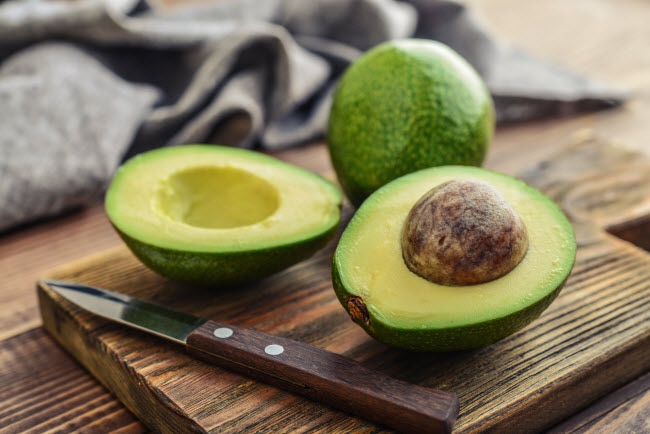If ever a fruit deserved to be labeled “trendy,” it is the avocado. People eat it plain, spread it on toast, add it to salads and use it to top burgers.
Avocados have soared in popularity in recent years. In 1989, U.S. consumption of avocados was 1.1 pounds per capita, according to the Agricultural Resource Marketing Center.
By 2016, that amount had soared to 7.1 pounds per capita.
Much of the newfound love for avocados is based in the notion that eating his fruit is especially beneficial to your health.
Angel Planells – a Seattle-based registered dietitian nutritionist and founder of ACP Nutrition -- applauds the trend. “Consumers are consuming a delicious, wholesome fruit,” he says.
Why avocados are good for you
Avocados are available in many varieties. The most popular type -- the Hass avocado -- is round with a black skin. But other types of avocados are shaped more like a pear and can be found in varying shades of green.
Planells says avocado nutrition benefits include many vitamins, including A, C, D, E, K and several B vitamins.
In addition, they contain the carotenoids lutein and zeaxanthin, which have been shown to protect vision.
A 2017 Tufts University study found evidence that eating one fresh avocado every day may boost lutein levels enough in the brain to lead to improved cognitive function in healthy, aging adults.
The study found that these adults significantly boosted working memory and their ability to solve problems.
“Avocados also provide an adequate amount of potassium, which is beneficial for reducing our blood pressure and as well as reducing our risk from strokes,” Planells says.
An avocado has 60 percent more potassium than a banana does, according to the Agricultural Resource Marketing Center.
Avocados contain heart-healthy “good” fats such as monounsaturated and polyunsaturated fats. In fact, the California Avocado Association says the avocado is “virtually the only fruit” to contain monounsaturated fat.
Such fats have been shown to reduce levels of LDL cholesterol – which is often referred to as “bad” cholesterol. Reducing this cholesterol can lower your risk of developing cardiovascular disease.
And unlike most fruits, avocados are low in natural sugar.
Too much of a good thing
Although avocados offer substantial health benefits, some people may claim a little too much on behalf of this unusual fruit.
“There can be a ‘health halo’ placed around a product like an avocado,” Planells says. “Consumers may feel that if a little is great, more must be better”
However, avocados are much higher in fat than other types of fruit. While this feature of the fruit helps some people to feel full and avoid overeating, others cannot get enough of the creamy avocado. Thus, they may overindulge.
“Consuming a larger portion than necessary may contribute to excessive calories, which in turn may result in weight gain,” Planells says.
Still, when eaten sensibly, avocados can be a cornerstone of a healthful diet. For example, a 2015 Penn State University study suggested that eating a single avocado each day is likely just right for getting the maximum heart protection out of the fruit.
Planells suggests adding avocados into your diet in the form of:
- Guacamole
- Slices in a salad, sandwich or burrito
- Blended into a smoothie
“It has always been a great (dietary) choice,” Planells says of the avocado.




